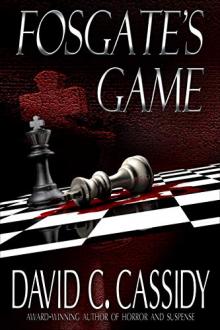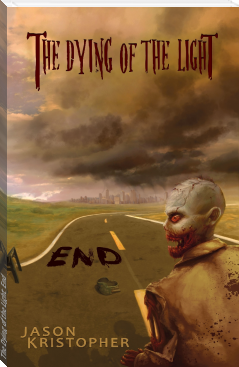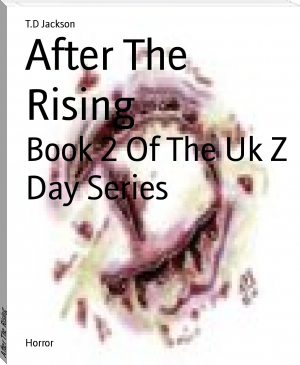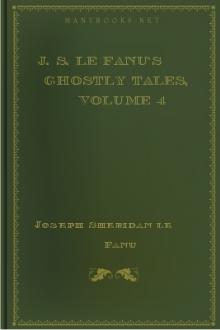Fosgate's Game - David C. Cassidy (life changing books to read .txt) 📗

- Author: David C. Cassidy
- Performer: -
Book online «Fosgate's Game - David C. Cassidy (life changing books to read .txt) 📗». Author David C. Cassidy
The chessmen were repulsive things. Things unspeakable, things no light should stir. The creatures (Yes, he told himself, that’s what they are, creatures) lay recessed in the wood in opposing rows, and he studied them with a nauseating mixture of curiosity and disgust.
The row nearest held figures of alabaster, the first of which was the King. It was viler than the horrible beasts which adorned the case, an uglier sister to an ugly sister. Five inches tall, perhaps two in width at its extremes, its constitution had been roughly sculpted to a vague human form. Body armor protected the torso, arms, and legs. Misshapen fingers on the left hand (which possessed only three) clenched a silvered, sharpened dagger, perched high, as if ready to be buried in a victim’s heart. Its head was more monster than human, a gross interpretation by the sculptor; perhaps the work of a blind artist, he mused. It had teeth, by God, few, but apparently roughened to appear vicious. Its piercing eyes, deeply rooted in blackened sockets, were frightfully hypnotic.
Like the King, the Queen was of malformed composition, its harrowing head a mass of roughly gouged eyes and razor-like teeth. Its right arm was raised, cocked to thrust what appeared to be the stone equivalent of a raging ball of fire.
What one would call a Bishop, or rather, two Bishops—although he had to force himself to imagine that the horrors beside the Queen were even chessmen—bore that same disturbing misshapenness. Their fierceness seemed subdued compared to the others, that was, until he regarded their weapons. Each held a staff of silver tipped with a savage blade.
Hulking bodies, half man-thing, half horse-thing, lay in wait, silent Knights of terror. They were hideous mutants with huge horse legs and bulging human arms. Forged armor fitted their chests. Their deformed heads were masked with simple helmets that appeared more like stony blobs of petrified feces than protective headgear. One could imagine the dim yellow of their eyes, creeping in the hollows behind the masks. Unlike the Bishops, the Knights differed in that each bore its own unique weapon: one slew its opponent with an oversized broadsword, curved slightly upwards at the tip; the other wrought hell upon its victim by the sling of a flesh-gouging mace.
The Rooks were filthy and repugnant—nightmarish golems. Brick-like in construction, they were far larger than the others. Despite the fact that they harbored no weapons, no doubt they could crush their victims and devour the remains with their oversized and hungering mouths.
Eight smaller creatures, the Pawns, of course—rounded out the white side. These were simpler affairs, little killing machines, no more than disfigured blobs bearing arrow and bow. Still, they settled in the soul like lurking demons.
He examined the dark pieces with equal fascination. No less obscene, they were far more frightening than their counterparts. Although he could not put his finger on it, there was something about them which terrified him. He supposed it was the light, or lack of it, which made them seem more menacing. Or was his mind playing tricks? He clasped his hands together for fear of touching one of them. Yet the temptation to look closer, to pick one up, very nearly overwhelmed him.
He felt a cold stir. The mace of the black Knight—
It changed hands, he thought. It did.
He sought Fosgate for confirmation. But when the man simply grinned the way he did, his gaze fell back to the case. The mace was back where it was. “Close it,” he whispered.
Fosgate did no such thing. “Something the matter, old boy? I’ll grant the odor is somewhat offensive.”
Chadwick found it impossible to look away. “… They’re … extraordinary.”
“Aren’t they.”
Fosgate motioned with the set, prodded really, and before Chadwick found the sense to reconsider, found himself reaching for a white Pawn.
No bloody way I’m touching those black things.
His fingers trembled as he took it up. As sound as marble, it was cold to the touch. And yet, it felt vibrant at an indescribable level. But how could that possibly be?
“Detestable.” Still, he marveled at the bow of stone, the arrow of silver. He ran a finger along the tip, and in a sharp reflex, drew his hand back in pain.
“Careful,” Fosgate warned. He took the piece and set it back. “They’re quite realistic.”
“I see that,” Chadwick said, his lips wrapped around his pricked index finger.
Another thunderclap rattled him. He steadied himself and sipped from his glass. The alcohol had begun to catch up with him, and despite the need he remain sober for the long drive home, he was grateful for its calming hand.
He noticed a pair of vacant spots inside the case that sat between the opposing sides. Triangular in shape, they were no more than two inches wide at their base. He had wanted to ask, but more pressing matters concerned him. “Fosgate, what’s this all about?”
“Let’s not get ahead of ourselves. Perhaps a little background first?”
Chadwick considered and conceded with a nod.
Fosgate placed the set on the table. He produced a small tobacco pouch, tapped the spent ashes from the pipe into a tall brass collector beside his chair, then refilled the chamber with fresh tobacco. He struck a match and lit up, then worked the long stem with quick puffs. Chadwick stiffened against that malodorous smoke.
Fosgate slipped the bit from his lips. “It has a rather nasty legacy, I’m afraid.”
“Indeed,” Chadwick said, raising a brow.
“I see you’re dry. One more?”
Damn you, old man. I’ve got to leave before I can’t.
Yet he felt as if he had to stay. Fosgate had sold him quite the bill of goods, had certainly piqued his interest if nothing more. At that he offered his glass, which his host took most readily. He’d have but one more, allow the man to indulge himself. Storm be damned.
Fosgate returned with two filled glasses and made himself comfortable in his chair. He drew up his pipe and sat back, and with a sly, reverent glance to his grandfather, told the tale.
~ 6“As I’d mentioned,” Fosgate began, “I was strolling about this rather obscure hamlet along the Weinstrasse. I can’t recall the name of the place, for it was a rather strict German-sounding thing, like Krichstein or Strickensmautz or something or other; you know how cold that language is. Katherine keeps on about how simple it is to pick up. I’ve tried, but keep failing, I’m afraid. Were it not for her relatives and the clean air, I’d just as soon stay in London. At least I can read the bloody signs.
“Katherine had joined her aunt in Freiburg for the weekend. Yes, in pursuit of yet another cuckoo clock. Apparently it’s still an art over there, and quite the cottage industry. Well … left alone I had little else to do, and thus a walk seemed to suffice. I hadn’t been along more than forty-five minutes when I chanced upon this quaint little establishment at the foothills of a rather mountainous area. More a cross between an old-style bakery and a tuck shop. Although that’s not right, somehow. No. It was more like … like something out of a child’s fantasy. Like a home of gingerbread!
“It had a plain sign above the entrance. Naturally it was German, and I hadn’t the foggiest, but I do remember what it said: Buchhandlung. When Katherine returned she translated for me. ‘Bookstore.’ Needless to say, I was quite embarrassed. But she was right, I assure you. A simple name, but an apt description of the interior.
“When I entered, it seemed abandoned. The only light came from two smallish windows. The smells affirmed my estimation of the place as some sort of bake shop. The thick aroma of pastries filled the air, and true enough, the far end of the shop offered a variety. Cream cakes, fruit flans, breads. I hadn’t had breakfast that morning and the walk had made me ravenous; perhaps that was why the aroma was so overwhelming. I can almost smell the freshly baked muffins as I’m talking to you now.
“The rest of the place was no less remarkable. The left side brimmed with rows of bookshelves, each of them stuffed with wonderful titles. I was quite in awe, and quite envious. Dare I say I discovered several first editions, perfectly preserved! A good deal were in German, yet there were volumes in French, Italian, Spanish, and English. Works of Nabokov and Tolstoy. Shakespeare and Homer. Hitler.
“As it was, I browsed for no more than five minutes when this curious little fellow startled me. Strange … now that I think of him, I don’t recall hearing his footsteps. A rather odd individual, I assure you.
“Yet that’s neither here nor there. The most unusual section was reserved for an area near the back. There, upon magnificent hand-crafted tables arranged in tidy rows, were a selection of the oddest assortment of items. Knick-knacks, Christmas ornaments, bibles, small reading lamps, pottery … other whatnot. It tasked me, taking it all in. Each article seemed to scream for my attention. I recall a rush of gooseflesh running my arms all the way to my neck. I’ve no idea why these things instilled such a start, yet they did.
“The proprietor? There all the while. He could see the … no, that’s incorrect, I’ve not given him credit here … he could sense the feeling I’d received from these curious items. He took me by the hand—I had to stop him, for I’d had a copy of Mein Kampf pulled half way from its resting place—and he led me to the tables.
“‘Kommen sie,’ he directed me. A smile escaped me, and he smiled back. It was completely engaging. I suddenly felt very at ease with him. I commented on his fine collections, and he simply nodded. My stomach growled just then, and he mumbled something in German. He left me momentarily, only to return with the most delicious slice of Black Forest cake. He pulled up a wooden stool and sat upon it in a very delicate manner. I thanked him for the offering, and ate while he spoke. His words … sharp and cutting … due certainly to that language. Clearly he knew English, but he struggled with it. Yet at the same time, he was quite hypnotic.
“‘Dreams,’ he told me, raising the oldest finger to his lips. I’d no idea at the time what he was on about. He slipped off his stool and moved slowly about the tables. He seemed quite fragile, yet graceful in his way. He mumbled. German gibberish. It was then that I’d realized he was seeking something very particular. Occasionally he’d pause upon a certain item; lean close to it and put a hand to his ear. Do you recall the sensation I’d experienced earlier, as if the wares had screamed at me? It was truer than I’d imagined. Certainly you could discard it out of hand. I mean, here was this odd-looking Aryan listening to … to things.
“How odd-looking? Odd. He bore an ancient face. As old as the hills, eh? His crisp white hair was striking against the drab clothing he wore. Silky. Angelic. Yet what I recall most vividly are his shoes—old, supple leather—if only because he made no sound as he stepped. He seemed out of sync with the world … out of time, if you will.
“Perhaps I’m overplaying his appearance, but I can see him as clearly as I see you now, Chadwick. He had this vividness about him. Spirited, yet down to earth.





Comments (0)